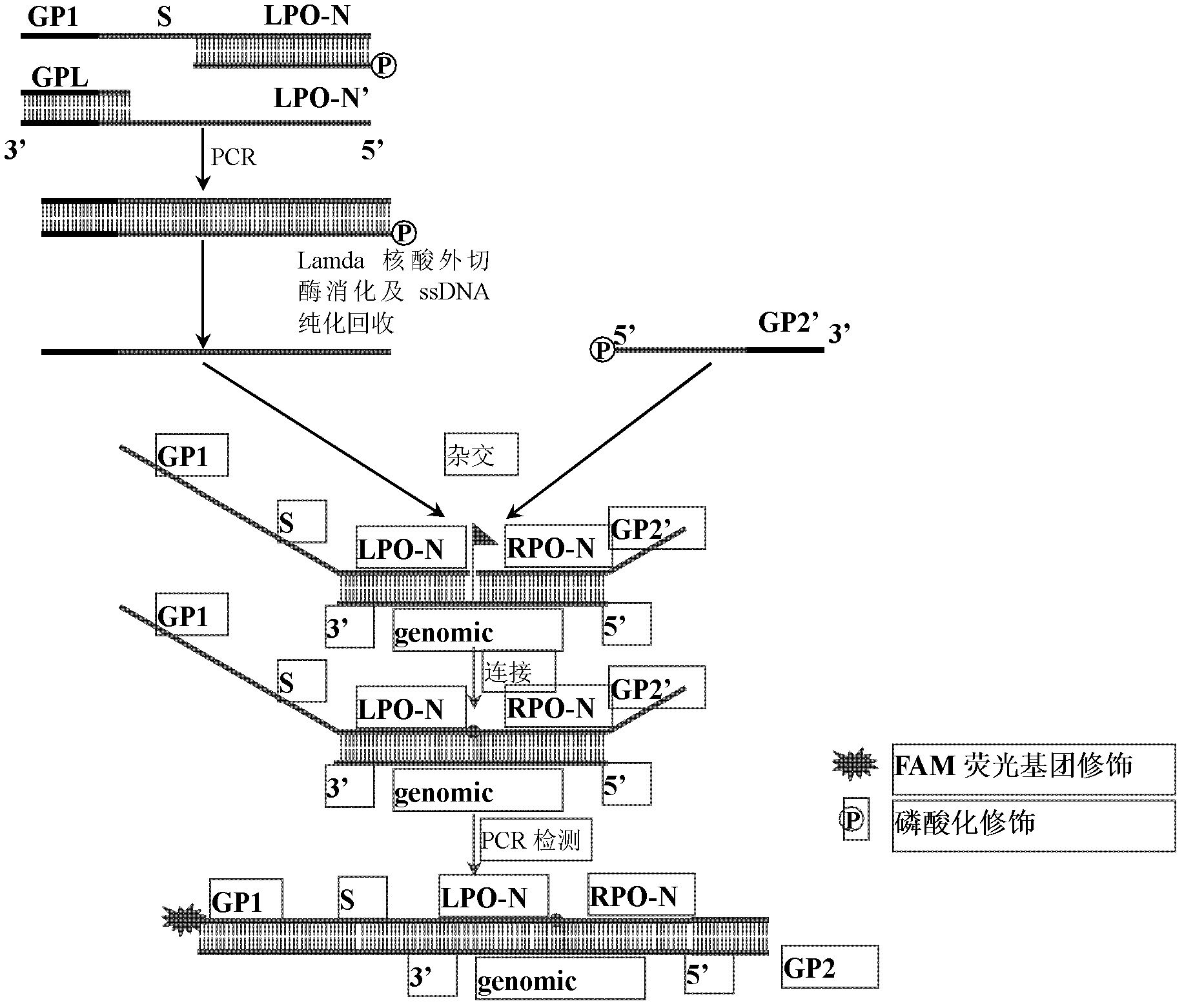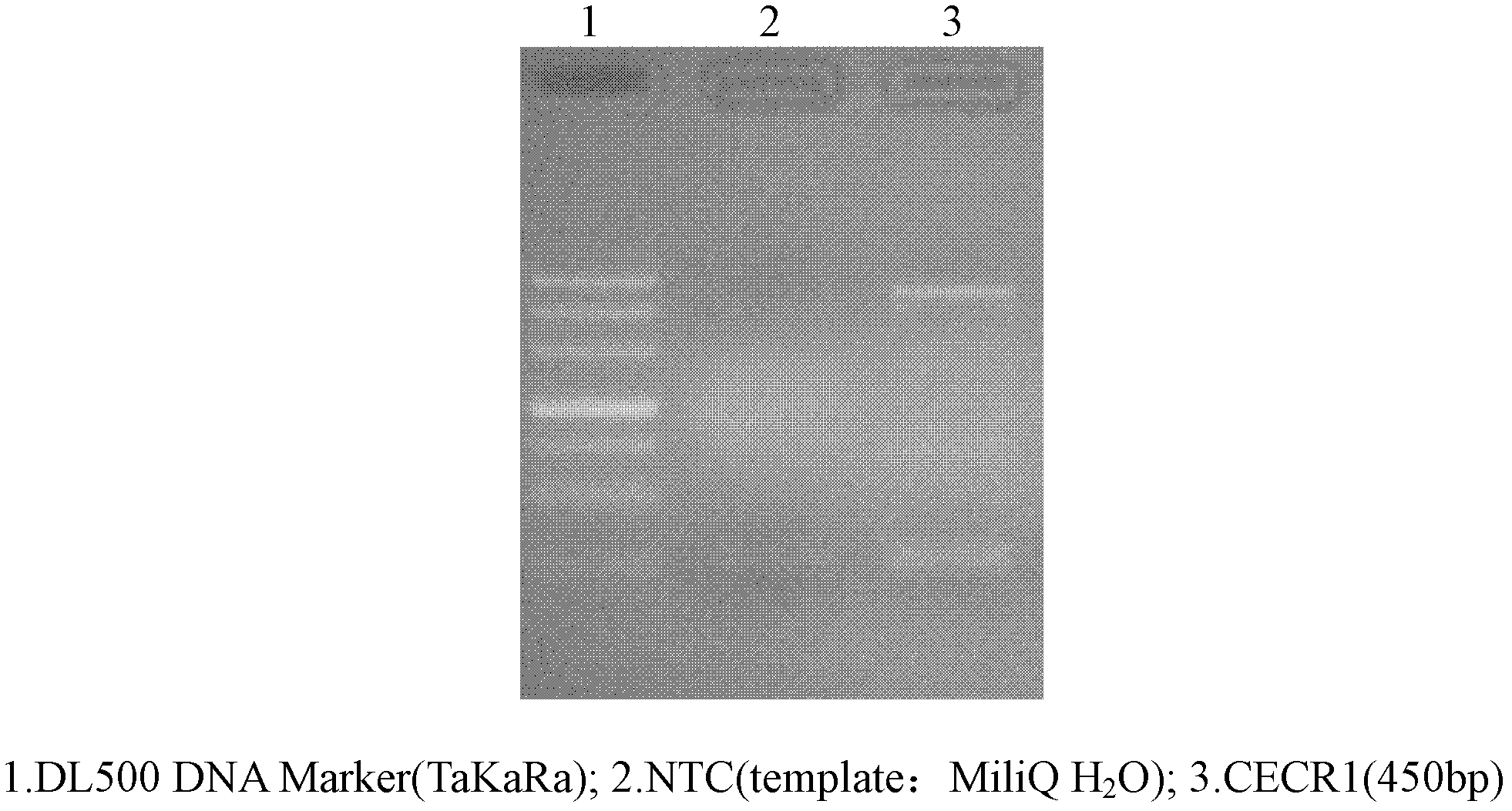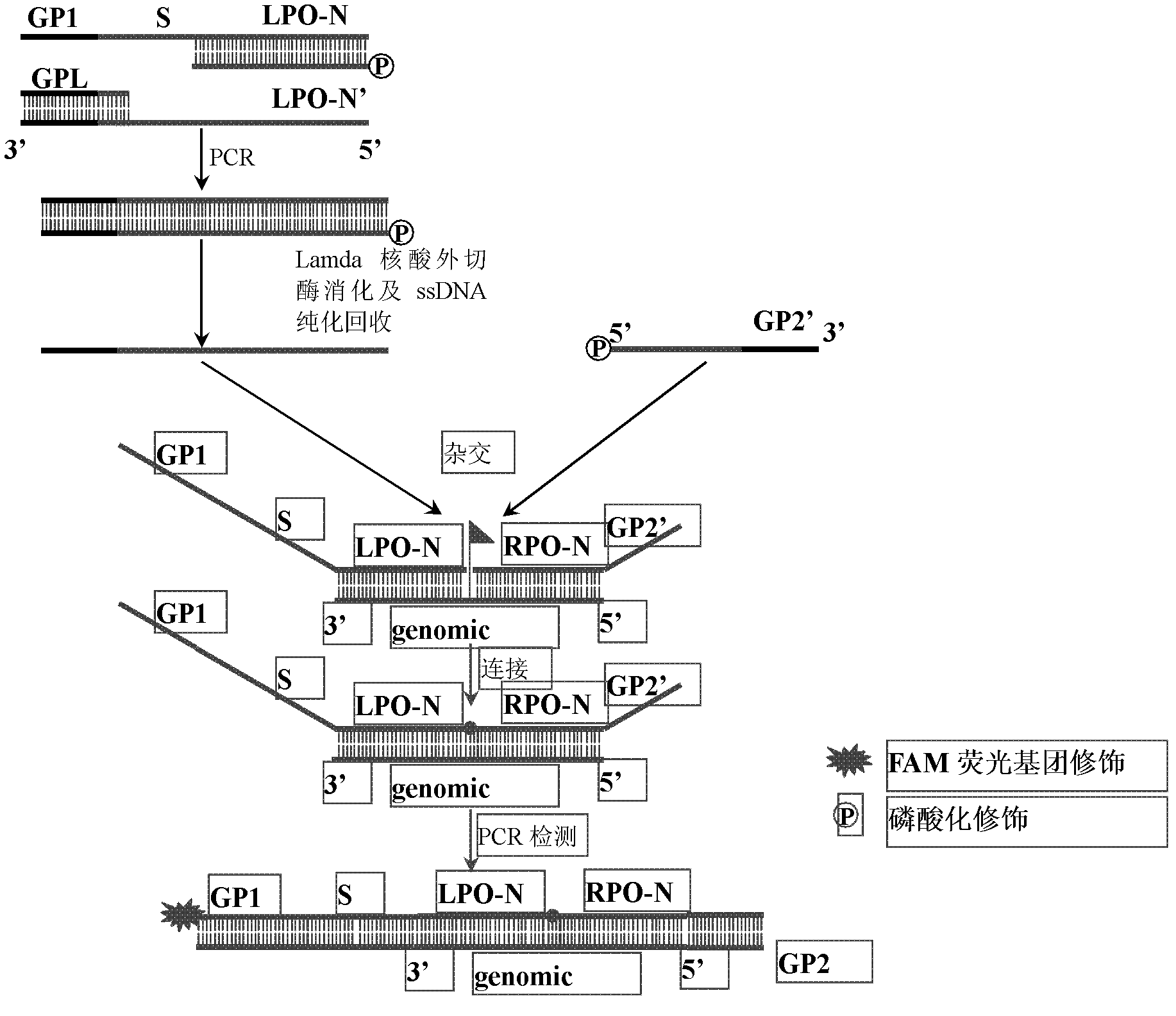Preparation method for probe used for multiplex ligation-dependent probe amplification (MLPA)
A technology of multiple ligation and probe, applied in the field of oligonucleotide probe preparation, can solve the problems of dsDNA residue, low probe yield and high cost, achieve low cost, high probe yield and improve hybridization efficiency Effect
- Summary
- Abstract
- Description
- Claims
- Application Information
AI Technical Summary
Problems solved by technology
Method used
Image
Examples
Embodiment Construction
[0028] The preparation method of the present invention is illustrated below in conjunction with the accompanying drawings and specific examples, specifically the preparation and detection of a long probe for detecting human genome CECR1 gene using multiple ligation amplification technology, including the following steps:
[0029] 1) Design a pair of detection primers that have nothing to do with the target fragment to be tested and the nucleotide sequence of the long probe, respectively GP1 (modified with a fluorescent group at the 5' end) and GP2, for the final PCR amplification detection; synthesized at the same time The right probe R-CECR1 with phosphorylation modification at the 5' end is composed of the right probe sequence of CECR1 and the reverse complementary sequence of GP2;
[0030] 2) Selection of a template nucleotide sequence (S) that has nothing to do with the target fragment to be detected, and design primers based on S and the target nucleotide sequence;
[003...
PUM
 Login to View More
Login to View More Abstract
Description
Claims
Application Information
 Login to View More
Login to View More - R&D
- Intellectual Property
- Life Sciences
- Materials
- Tech Scout
- Unparalleled Data Quality
- Higher Quality Content
- 60% Fewer Hallucinations
Browse by: Latest US Patents, China's latest patents, Technical Efficacy Thesaurus, Application Domain, Technology Topic, Popular Technical Reports.
© 2025 PatSnap. All rights reserved.Legal|Privacy policy|Modern Slavery Act Transparency Statement|Sitemap|About US| Contact US: help@patsnap.com



